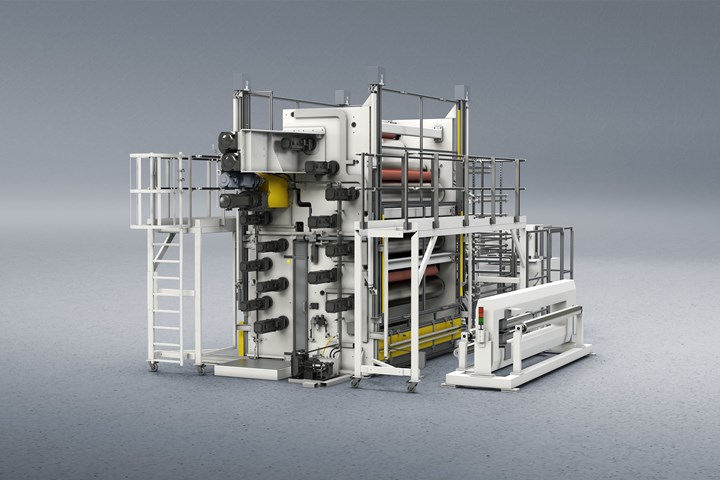Dual-Frame MDO Boosts Efficiency
‘Revolutionary’ dual-frame technology allows for high production speeds while significantly reducing cleaning and service times.
SML’s dual-frame machine direction orientation (MDO) system is said to take MDO technology to the next level reportedly by offering high production speeds, significantly shorter down-times and a boost in overall line efficiency.
The new design consists of two independent frames with an inline adjustable stretching gap. The two frames are relocatable to each other; the variable distance between the two frames precisely defines the length of the stretching gap.
All the essential mechanical properties of the film in the machine and cross direction are determined by the length of the stretching gap and the stretching speed, SML explains. The machine builder says that the system guarantees both maximum control of the film properties and very high production speeds while significantly reducing cleaning and service times.
In the case of films for stand-up pouches, SML’s MDO units are reportedly able to manufacture PE films thinner than the current 25-80μm thickness standard to replace BOPET or BOPP film on the outside of the pouches. This pouches to be produced from an all PE structure. Not only are these thinner mono-material pouches easier to recycle than conventional multi-material pouch film, raw material costs—and with it the general carbon footprint—and significantly reduced. Thicker machine-oriented PP films are used only for the sealing layer, providing straight tear properties when the stand-up pouches are opened.

The SML dual-frame design of SML’s latest MDO generations offers stretching both according to the short-gap and the long-gap procedure. As a result, these lines are not limited to processing polyolefins, says SML.
Related Content
-
Part 2 Medical Tubing: Use Simulation to Troubleshoot, Optimize Processing & Dies
Simulation can determine whether a die has regions of low shear rate and shear stress on the metal surface where the polymer would ultimately degrade, and can help processors design dies better suited for their projects.
-
What to Know About Your Materials When Choosing a Feeder
Feeder performance is crucial to operating extrusion and compounding lines. And consistent, reliable feeding depends in large part on selecting a feeder compatible with the materials and additives you intend to process. Follow these tips to analyze your feeder requirements.
-
Why Are There No 'Universal' Screws for All Polymers?
There’s a simple answer: Because all plastics are not the same.







